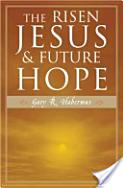Wednesday, December 2, 2009
What is History? Objections to the Objectivity of History Part 2
Previously, we examined the objections to the objectivity of history raised by historical relativists. Epistemological, axiological, and methodological objections were explored in last week’s posting. This week, attention will be given to three other types of objections: metaphysical, psychological, and hermeneutical.
The Metaphysical (Worldview) Objections
Simply stated, the various metaphysical objections to the objectivity of history steam from the notion that one’s worldview colors his perspective of the past.
The Need to Structure the Facts of History
One of the epistemological objections we studied last week dealt with the fragmentary nature of existing historical documents. For the historical subjectivist, this observation leads to the conclusion that our partial knowledge of the past necessitates that we to fill in the gaps or connect the dots between events with our own imagination. Dr. Norman Geisler illustrates this criticism by comparing it with a connect the dot game often found in children’s activity books. Just as the child starts with dot number one and draws lines connecting each dot, thereby rendering a complete image, so too does the historian. However, unlike the child’s activity historians utilize only their imagination in connecting the fragmentary facts, according to historical relativists.(1)
Second, historical subjectivists make a distinction between a chronicle and history. A chronicle is the unrefined source material used by historians to construct history. Here in lies the problem according to the relativist-the historian is not content to tell his readers what happened but feels compelled to explain why it happened. As one might expect, relativists argue that these connective explanations are influenced by the worldview of the historian and therefore are not objective.(2)
The Unavoidability of Worldviews
The second metaphysical objection is similar to the first. Objectivity is compromised because every historian interprets the past within the framework of his own worldview. As discussed in a previous posting there are only three philosophies of history from which the historian can choose, chaotic, cyclical, and linear. Relativists charge that facts occupy a secondary role compared to the philosophy of history chosen by the historian. Rather, one’s faith and philosophical preferences skew their choice of philosophical paradigm. Facts therefore are not allowed to speak for themselves but are given voice based upon the worldview of the historian.(3) Consequently, “if there are several different ways to interpret the same facts, depending on the overall perspective one takes, then there is no single objective interpretation of history.”(4)
The Problem of Miracles
“Even if one grants that secular history could be known objectively, there still remains the problem of the subjectivity of religious history.”(5) Subjectivists argue that since miracles are supernatural there is no way to objectively verify them. This, of course, presents a potential problem for Bible believers because scripture records many miracles including the resurrection of Christ as historical facts. According to relativists, spiritual history has no connection with the spatiotemporal continuum of empirical events, thereby relegating miracles to the category of myths. As a result, any worldview which accepts miracles as valid would render history written from that vantage point not objective. Therefore, relativists argue that “the historian, like the scientist must adopt a methodological skepticism toward all alleged events in the past for which he has not parallel in the present—the present is the foundation of our knowledge of the past.”(6)
The Psychological Objection
At this point the attentive reader has no doubt noticed similarities among the arguments asserted against the knowability of history. The psychological objection is no exception. This argument is once against biased against anyone writing history from a religious point of view. In simple terms, the psychological objection asserts that history written by persons with religious motives cannot be trusted because their religious passions obscure their objectivity. Supporters of this position will commonly say that the New Testament writers cannot be trusted because they sought to recreate what Jesus said and not simply report His sayings. As a result, the Gospels are more reflective of the experiences of Christians than they are an accurate recording to the words and life of Jesus.(7)
The Hermeneutical Objection
In his book, Metahistory, author Hayden White claims that history is poetry. According to this view, history should be treated in the same manner as any other piece of literature. White argues that no history can be written apart from some unifying concept which can only be chosen from one of the following archetypal plot structures: romance, tragedy, comedy, or satire. Since one of these poetic plot structures is not better than the others but merely different, White views all debate about how history should be written as a matter of stylistic variation thereby rendering the entire discussion of historical objectivity moot.(8)
All the objections considered in the last two articles have one thing in common-they all seek to overthrow Christianity by challenging the validly of the faith’s historical underpinnings. Next week, we will begin to present a defense for the objectivity of history against its detractors.
Endnotes:
1)Normal Geisler. Baker Encyclopedia of Christian Apologetics. (Grand Rapids, MI: Baker Books, 1999), 322.
2)Ibid., 322.
3)Norman Geisler. Systematic Theology Volume One. (Minneapolis, MN: Bethany House, 2002), 186.
4)Ibid., 187.
5)Ibid., 187.
6)Ibid, 188.
7)Ibid., 188-189.
8)Hayden White. Metahistory: The Historical Imagination in Nineteenth-CenturyEurope. 41-42.
The Metaphysical (Worldview) Objections
Simply stated, the various metaphysical objections to the objectivity of history steam from the notion that one’s worldview colors his perspective of the past.
The Need to Structure the Facts of History
One of the epistemological objections we studied last week dealt with the fragmentary nature of existing historical documents. For the historical subjectivist, this observation leads to the conclusion that our partial knowledge of the past necessitates that we to fill in the gaps or connect the dots between events with our own imagination. Dr. Norman Geisler illustrates this criticism by comparing it with a connect the dot game often found in children’s activity books. Just as the child starts with dot number one and draws lines connecting each dot, thereby rendering a complete image, so too does the historian. However, unlike the child’s activity historians utilize only their imagination in connecting the fragmentary facts, according to historical relativists.(1)
Second, historical subjectivists make a distinction between a chronicle and history. A chronicle is the unrefined source material used by historians to construct history. Here in lies the problem according to the relativist-the historian is not content to tell his readers what happened but feels compelled to explain why it happened. As one might expect, relativists argue that these connective explanations are influenced by the worldview of the historian and therefore are not objective.(2)
The Unavoidability of Worldviews
The second metaphysical objection is similar to the first. Objectivity is compromised because every historian interprets the past within the framework of his own worldview. As discussed in a previous posting there are only three philosophies of history from which the historian can choose, chaotic, cyclical, and linear. Relativists charge that facts occupy a secondary role compared to the philosophy of history chosen by the historian. Rather, one’s faith and philosophical preferences skew their choice of philosophical paradigm. Facts therefore are not allowed to speak for themselves but are given voice based upon the worldview of the historian.(3) Consequently, “if there are several different ways to interpret the same facts, depending on the overall perspective one takes, then there is no single objective interpretation of history.”(4)
The Problem of Miracles
“Even if one grants that secular history could be known objectively, there still remains the problem of the subjectivity of religious history.”(5) Subjectivists argue that since miracles are supernatural there is no way to objectively verify them. This, of course, presents a potential problem for Bible believers because scripture records many miracles including the resurrection of Christ as historical facts. According to relativists, spiritual history has no connection with the spatiotemporal continuum of empirical events, thereby relegating miracles to the category of myths. As a result, any worldview which accepts miracles as valid would render history written from that vantage point not objective. Therefore, relativists argue that “the historian, like the scientist must adopt a methodological skepticism toward all alleged events in the past for which he has not parallel in the present—the present is the foundation of our knowledge of the past.”(6)
The Psychological Objection
At this point the attentive reader has no doubt noticed similarities among the arguments asserted against the knowability of history. The psychological objection is no exception. This argument is once against biased against anyone writing history from a religious point of view. In simple terms, the psychological objection asserts that history written by persons with religious motives cannot be trusted because their religious passions obscure their objectivity. Supporters of this position will commonly say that the New Testament writers cannot be trusted because they sought to recreate what Jesus said and not simply report His sayings. As a result, the Gospels are more reflective of the experiences of Christians than they are an accurate recording to the words and life of Jesus.(7)
The Hermeneutical Objection
In his book, Metahistory, author Hayden White claims that history is poetry. According to this view, history should be treated in the same manner as any other piece of literature. White argues that no history can be written apart from some unifying concept which can only be chosen from one of the following archetypal plot structures: romance, tragedy, comedy, or satire. Since one of these poetic plot structures is not better than the others but merely different, White views all debate about how history should be written as a matter of stylistic variation thereby rendering the entire discussion of historical objectivity moot.(8)
All the objections considered in the last two articles have one thing in common-they all seek to overthrow Christianity by challenging the validly of the faith’s historical underpinnings. Next week, we will begin to present a defense for the objectivity of history against its detractors.
Endnotes:
1)Normal Geisler. Baker Encyclopedia of Christian Apologetics. (Grand Rapids, MI: Baker Books, 1999), 322.
2)Ibid., 322.
3)Norman Geisler. Systematic Theology Volume One. (Minneapolis, MN: Bethany House, 2002), 186.
4)Ibid., 187.
5)Ibid., 187.
6)Ibid, 188.
7)Ibid., 188-189.
8)Hayden White. Metahistory: The Historical Imagination in Nineteenth-CenturyEurope. 41-42.
Subscribe to:
Post Comments (Atom)


























No comments:
Post a Comment